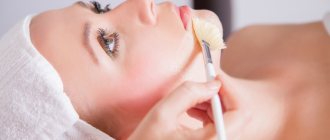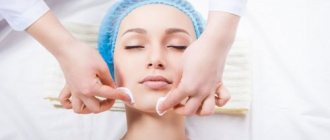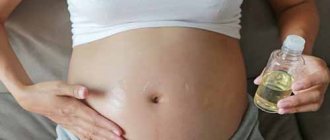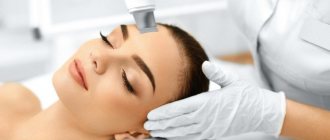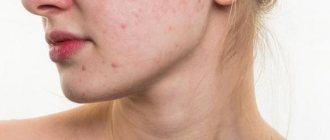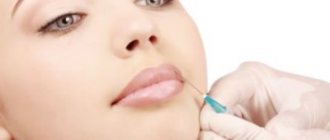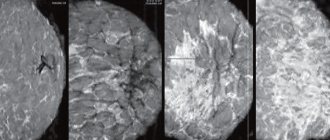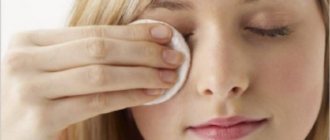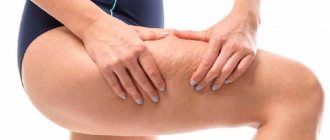The essence of the procedure
Biorevitalization is a modern and very effective procedure that can literally bring tired, dry skin that has lost its firmness and elasticity back to life. Of course, it is not a complete replacement for plastic surgery or laser resurfacing, but it also gives quite noticeable results, and this with a minimum of contraindications and side effects.
The main active component of most modern drugs is hyaluronic acid. It is present in the human body and is produced by it. But after 25 years, its concentration begins to gradually decrease, which subsequently negatively affects appearance and well-being, since this substance is present in almost all tissues.
Of course, the lack of hyaluronic acid is not the only reason that provokes aging, but it is far from in last place. Experience shows that when replenishing its deficiency:
- skin condition improves;
- small wrinkles are smoothed out;
- the volume of soft tissues is restored;
- vision becomes sharper;
- joints stop cracking;
- collagen production increases;
- The oval of the face is tightened.
Ideally, hyaluronic acid should not only be administered subcutaneously, as happens during the biorevitalization procedure, but also periodically administered in courses in tablet or capsule form. This is how the rejuvenation process starts at full speed.
Contraindications
Pregnancy is an absolute contraindication to hyaluronic acid injections. You cannot do biorevitalization during the period of breastfeeding. Moreover, most experts advise returning to injection cosmetology not immediately after the end of lactation, but 2-3 months after you stop breastfeeding.
Other contraindications:
- inflammatory processes in the body;
- skin damage;
- acne in the acute stage;
- skin diseases;
- herpes;
- colds;
- increased body temperature;
- endocrine pathologies;
- blood clotting disorder;
- taking anticoagulants;
- individual intolerance to the components of the drug (hyaluronate is a natural substance, but allergies can occur to other components or simply due to individual characteristics);
- oncology (specialist consultation is required);
- diabetes;
- diseases of the heart and blood vessels;
- autoimmune pathologies;
- age under 18 years (usually biorevitalization is not performed on patients under 25 years of age);
- days of menstruation.
For pregnant patients, we can recommend safe care products (emulsion for washing, balancing lotion, etc.). Pregnant women can also undergo ultrasound cleaning (with the permission of the gynecologist). As for other cosmetic services, it is better to wait out the pregnancy period. After all, the baby’s health is undoubtedly an absolute value!
Methods of administration
Today, creams and serums for external use with hyaluronic acid have become very popular. They do give good results, but only with constant use. The problem is that hyaluronic acid from the cream cannot penetrate the hydrolipid barrier into the deep layers of the epidermis. It works superficially, hence the short-lived effect.
In addition, during the cold season and windy weather, it is advisable to use such products only while sitting at home, otherwise you can cause severe peeling of the skin.
Scientists were able to solve the problem of delivering hyaluronic acid directly to the destination in two ways: by injection or using hardware procedures.
The needle technique works better, but is associated with greater risks and injures the skin. The needleless procedure is completely painless, absolutely safe, but does not give such quick results and does not allow you to correct the oval of the face.
Effect of drugs
Many women regularly undergo procedures and take medications based on hyaluronic acid, as it provides an excellent anti-aging effect due to:
- smoothing out small wrinkles;
- significant reduction in deep;
- refreshing complexion;
- smoothing skin texture;
- accelerating natural regeneration;
- increasing lip volume;
- restoration of clarity of the oval of the face;
- slowing down destructive age-related changes;
- eliminating sagging and dry skin;
- smoothing stretch marks and small scars.
And many of them do not want to part with their favorite drugs even during pregnancy. However, experts say that their injection during this delicate period is unsafe.
Biorevitalization during pregnancy
But if hyaluronic acid is non-toxic and well accepted by the human body, why do doctors still strongly advise against performing biorevitalization during pregnancy, in any form? Their opinion is not unfounded and is associated primarily with concerns for the health of the baby and the expectant mother.
First trimester
The most dangerous period of pregnancy is the first trimester. The answer to the question whether biorevitalization with hyaluronic acid is acceptable at the very beginning of pregnancy is clearly negative. The situation is further complicated by the fact that a woman may not find out about the birth of a new life immediately after conception. Sometimes this news is revealed in the second or even third month. Naturally, not everyone leads a completely healthy lifestyle, and there is no guarantee that at this time the expectant mother did not have time to go to several cosmetic procedures.
The risks are associated with the fact that during the first few weeks the fetus has not yet firmly attached itself to the wall of the uterus, and the slightest stress or intoxication can lead to spontaneous abortion. In addition, due to the absence of a placenta, it is directly affected by everything that enters the mother’s body. And at this time, the laying of vital organs and systems occurs.
That is why doctors recommend refraining from taking medications and any invasive procedures.
But if it so happens that a woman has passed them, there is no need to panic ahead of time. Of course, biorevitalization is undesirable during pregnancy in the early stages, but there is no evidence that it provokes severe complications or malformations of the fetus. It’s just that in the future it’s worth abandoning invasive procedures and going for an ultrasound scan as early as possible to make sure that everything is fine with the baby.
Second trimester
The woman already knows for sure that she is expecting a child and makes only conscious decisions. This period is the calmest. The body has time to adapt to the new state, toxicosis usually passes, and the baby is reliably protected from external influences by the amniotic sac and placenta.
From about 4-5 months, changes in a woman’s appearance become noticeable, primarily associated with significant fluctuations in hormonal levels and a slowly growing belly. Someone begins to look much fresher, their skin smoothes out, their face literally glows. But there are also those who have problems and unwillingness to accept themselves as they are. They turn to cosmetologists with a request for biorevitalization.
But a more or less experienced specialist will refuse to even perform the procedure using the laser method, although it does not damage the skin. Intense effects on the body can lead to:
- increased blood pressure;
- severe allergic reactions;
- itching and peeling of the skin;
- long lasting redness;
- severe swelling.
If biorevitalization is nevertheless performed by injection, then a high risk of wound infection is added to the listed problems, since the pregnant woman’s immunity already bears a double burden, which it cannot always cope with. In addition, the sensitivity of the skin is also increased and the procedure will be very unpleasant.
Third trimester
Some cosmetologists allow themselves to perform laser biorevitalization during this period. She can no longer have any negative impact on the baby. And mom doesn’t need any extra stress associated with not accepting her own appearance. But before the procedure, the patient signs a document according to which she assumes all risks. This means that negative consequences cannot be completely ruled out, otherwise doctors would not play it safe.
Again, there is no need to give injections. Even for those who are not afraid of them, injections are always very stressful. The body automatically reacts to it with the release of adrenaline, which dilates the blood vessels and makes blood flow through them faster. And this is very undesirable during biorevitalization, as it leads to the formation of extensive bruises and reduces the effectiveness of the procedure.
But this is not even the main danger. Any sudden hormonal fluctuations and strong feelings can trigger premature birth. Women who have already had a threat of miscarriage should be especially careful.
So it is better to refrain from invasive cosmetic procedures. Moreover, there is very little time left to wait.
Side effects
Invasive procedures using hyaluronic acid are accompanied by adverse reactions.
- Soreness. This is a natural reaction of the body. But the pain may not go away for several days and this indicates the development of an infection or abscess.
- Hemorrhages, hematomas.
- Allergic reactions. In addition to redness, itching, rash, there is a risk of angioedema and anaphylactic shock.
- Swelling. Danger arises if swelling does not go away within a few days.
- Inflammation of infectious etiology. Occurs when hygiene rules are not followed.
- Seal at the puncture site. A frequent reaction that should resolve within 3 days. Otherwise, this indicates the development of an abscess or fibrosis.
- Facial asymmetry. Occurs when an excessive amount of a substance is administered. A dangerous manifestation that indicates a lack of professionalism.
Injections of hyaluronic acid into the lips during pregnancy are not recommended either in the 1st or subsequent trimesters. This is due to the high risk of adverse reactions and negative effects.
When is it possible
Doctors also prohibit biorevitalization during the recovery period. For a woman who is not breastfeeding, this is approximately six months after giving birth. If the baby grows up on mother's milk, nothing unnecessary should get into it, and stress is also not needed so that lactation does not decrease.
In this case, you will have to wait until feeding is completed; injections can only be given two months after weaning.
This period is necessary in order for the woman’s hormonal levels to stabilize, on which the result of biorevitalization largely depends. But during this period you can already do massages, hardware procedures, use rejuvenating creams and masks. Only deep chemical or laser peels are undesirable - they can provoke severe pigmentation.
How to care for the skin of an expectant mother?
When is biorevitalization allowed after childbirth? For those who want to do it, it is important to know that at least a year must pass for the body to recover and be able to respond correctly to the drugs. During pregnancy and lactation, you can try safe alternative methods of rejuvenation.
The daily facial care regimen during pregnancy is extremely simple:
- washing with warm water or herbal decoctions;
- cleansing with a scrub based on sour cream and ground oatmeal, coffee beans;
- moisturizing with cucumber, tomato, zucchini masks;
- toning with ice cubes;
- nutrition with olive and almond oil.
Pregnancy is not the time for serious cosmetic procedures. It is better to turn to safe folk remedies. During pregnancy, the skin is especially sensitive. It should be protected from dry air, direct sun, and chemicals. After giving birth, you can go to a beauty clinic, where they will select a rejuvenation program.
Summing up
If the family practices pregnancy planning, this is an ideal option for the expectant mother and child. The woman first undergoes a medical examination, undergoes the necessary anti-aging procedures and learns from cosmetologists about alternative methods that are harmless to the baby.
But if you happen to get pregnant by accident and decide to give birth, then it is better to postpone all invasive procedures until later.
The question of whether pregnant women can undergo biorevitalization cannot be answered categorically - no. In principle, the harm from it has not been proven. But no experienced doctor would risk taking on such responsibility. Is the expectant mother ready to carry it? In most cases, women answer that no and are content with traditional methods of rejuvenation. Moreover, according to reviews from those who decided to undergo the procedure, it was quite unpleasant, always accompanied by a negative reaction from the body, and the result lasted less than usual. So is it worth the risk?
